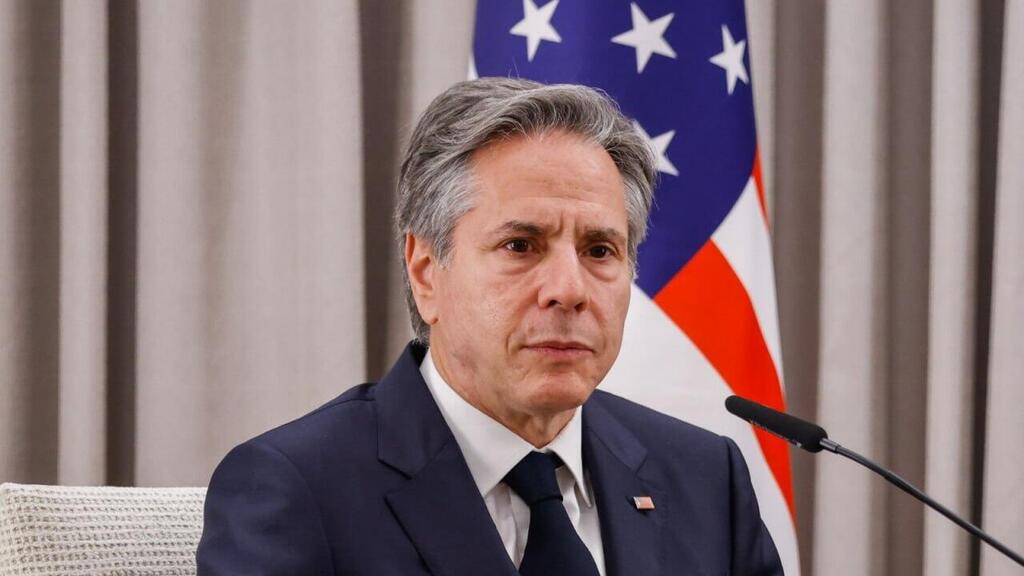Getting your Trinity Audio player ready...
Blinken: All options on the table to prevent Iranian nuclear weapons
U.S. Secretary of State Antony Blinken met Saudi Crown Prince Mohammed bin Salman and discussed a wide range of bilateral issues, in an "open, candid" conversation, a U.S. official said. The top U.S. diplomat arrived in Saudi Arabia late on Tuesday for a much-anticipated visit amid frayed ties due to deepening disagreements on everything from Iran policy to regional security issues, oil prices and human rights.
More stories:
Washington is also hoping to further conversations on the possible and eventual normalization of ties between the kingdom and Israel, while countering expanding Chinese and Russian influence in the region.
1 View gallery


US Secretary of State Antony Blinken met in Jeddah with Saudi Crown Prince Mohammed bin Salman
(Photo: Olivier Fitoussi, Flash90)
Blinken and the crown prince, the de-facto ruler of the kingdom who is also known as MbS, met for an hour and forty minutes, a U.S. official said, covering many topics including Israel, the conflict in Yemen, unrest in Sudan as well as human rights.
"There was a good degree of convergence on potential initiatives where we share the same interests, while also recognizing where we have differences," the U.S. official said.
A good part of the discussion was expected be dominated by the possible normalization of ties between Saudi Arabia and Israel, even though officials had played down the likelihood of any immediate or major progress on the issue.
"They discussed the potential for normalization of relations with Israel and agreed to continued dialogue on the issue," the U.S. official said, without providing further details.
Saudi Arabia, a Middle East powerhouse and home to Islam's two holiest shrines, gave its blessing to Gulf neighbors United Arab Emirates and Bahrain establishing relations with Israel in 2020 under the previous U.S. administration of Donald Trump.
Riyadh has not followed suit, saying Palestinian statehood goals should be addressed first. In April, Saudi Arabia restored ties with Iran, a regional rival and Israel's arch-foe.
Developing a civilian nuclear program is among Riyadh's conditions for normalizing ties with Israel, a source familiar with the discussions said, confirming a New York Times report from March. Saudi or U.S. officials have not publicly confirmed that.
Hours before departing for Saudi Arabia, at a speech in Washington, Blinken said the United States had a "a real national security interest" in advocating for normaliזing Saudi-Israeli ties but cautioned about the time frame. "We have no illusions that this can be done quickly or easily," Blinken said.
MbS and Blinken also discussed Yemen and potential ways to resolve remaining issues, while Blinken thanked the crown prince for the kingdom's role in pushing for a cease-fire in Sudan and helping evacuate U.S. citizens.
Blinken also raised human rights issues with MbS, the U.S. official said, both on a broad level and relating to specific cases, although did not say which cases.
The kingdom has been pouring hundreds of billions of dollars into transforming and opening its economy to reduce dependence on crude oil. The reforms have been accompanied by a raft of arrests of critics of MbS, as well as of businessmen, clerics and rights activists.
Most recently in March, Saudi authorities released a U.S. citizen jailed for 19 years for posting criticism of the government on Twitter but he has remained banned from traveling.




